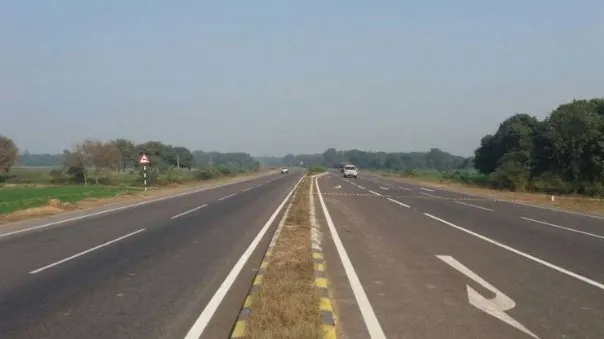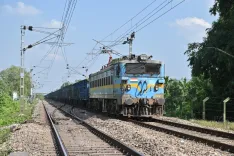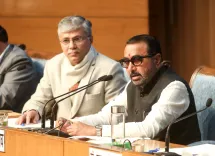National Highways Construction Surges by 130% in Last Decade: Gadkari

Synopsis
Key Takeaways
- National Highways construction increased by 130% from 2014-2024.
- Total length of new highways in the last decade is 1,01,900 km.
- Currently, 1,366 projects are ongoing across the nation.
- AIMC technology is being piloted for improved construction efficiency.
- Road safety is prioritized at all project stages.
New Delhi, Feb 6 (NationPress) The average yearly construction of National Highways has surged by an astounding 130% from 2014 to 2024, in contrast to the prior decade of 2004 to 2014. This has resulted in a total length of 1,01,900 km constructed over the last ten years, as stated by Nitin Gadkari, the Minister of Road Transport and Highways, during a parliamentary session.
Currently, there are 1,366 projects underway, covering approximately 32,366 km across the nation, including regions like Chhattisgarh, Rajasthan, and various northeastern states. These projects are still in different stages of development and do not include those considered for termination. Most are expected to reach completion in phases by the financial year 2028, the minister informed the Lok Sabha.
In response to another inquiry, Gadkari revealed that the National Highways Authority of India (NHAI) is piloting an Automated & Intelligent Machine-aided Construction (AIMC) system in the Lucknow-Kanpur Greenfield Expressway Project. This innovative approach employs advanced machinery such as GPS-aided motor graders, Intelligent Compactors, and stringless pavers.
The anticipated benefits of AIMC include time savings in construction without sacrificing quality, enhanced productivity, digital documentation and monitoring in real-time, and improved control over quality metrics like smooth surfaces and proper compaction, according to Gadkari.
The government is working on finalizing a policy for the implementation of AIMC in National Highway projects, he further explained.
Gadkari emphasized that construction activities on National Highways adhere to government-specified standards for quality and safety in road and bridge works, including guidelines set by the Indian Roads Congress (IRC). It is the contractor's primary duty to comply with these specifications.
Additionally, road safety is integrated into all project phases, including design, construction, operation, and maintenance. Safety audits are conducted during the design phase to ensure compliance with safety standards. Measures are also taken during construction and operation stages to ensure safe traffic movement and evaluate existing safety measures, the minister noted.
To ensure adherence to the set specifications, consultants (authority's engineer/independent engineer) are appointed, and officials from executing agencies perform random quality checks. For specific works, third-party quality auditors may be engaged, with any deficiencies reported for rectification by the contractor.










